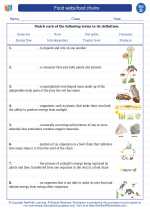Annelids
Annelids are a group of invertebrate animals that belong to the phylum Annelida. They are commonly known as segmented worms because their bodies are divided into distinct segments. Annelids are found in various habitats including marine environments, freshwater, and damp soil. There are over 17,000 known species of annelids, including earthworms, leeches, and marine bristle worms.
Characteristics of Annelids
- Segmented Body: Annelids have a body that is divided into multiple segments. Each segment contains a distinct set of organs and muscles.
- Hydrostatic Skeleton: Annelids have a fluid-filled cavity within their body that provides support and allows for movement.
- Setae: Many annelids have bristle-like structures called setae on each segment, which aid in movement and grip.
- Well-Developed Coelom: Annelids have a true coelom, which is a fluid-filled body cavity that provides space for internal organs.
- Closed Circulatory System: Annelids have a closed circulatory system, meaning that their blood is contained within vessels.
- Respiration: Most annelids respire through their skin, while some marine species have gills for breathing.
Ecological Importance
Annelids play a crucial role in various ecosystems. Earthworms, for example, help improve soil fertility by breaking down organic matter and aerating the soil. They also contribute to the decomposition process. Additionally, some annelids serve as food for other animals, while others act as parasites, feeding on the blood of their hosts.
Study Guide
Here are some key points to remember when studying annelids:
- What are the main characteristics of annelids?
- Describe the importance of annelids in different ecosystems.
- Identify and describe at least three different species of annelids.
- Explain how annelids respire and circulate nutrients in their bodies.
- Discuss the ecological and economic significance of annelids.
Understanding the characteristics and ecological roles of annelids is important for appreciating the diversity of life on Earth and their impact on the environment.
.◂Science Worksheets and Study Guides Fourth Grade. Food webs/food chains
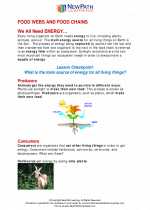
 Activity Lesson
Activity Lesson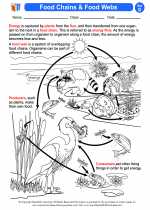
 Worksheet/Answer key
Worksheet/Answer key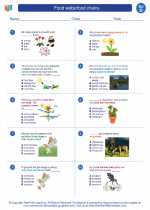
 Worksheet/Answer key
Worksheet/Answer key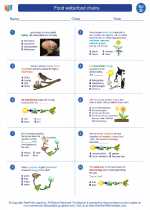
 Worksheet/Answer key
Worksheet/Answer key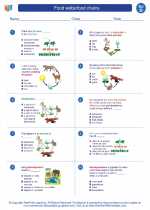
 Worksheet/Answer key
Worksheet/Answer key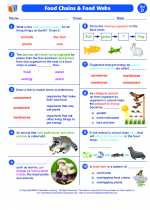
 Vocabulary/Answer key
Vocabulary/Answer key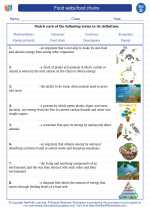
 Vocabulary/Answer key
Vocabulary/Answer key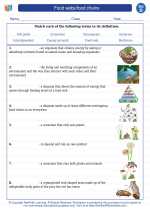
 Vocabulary/Answer key
Vocabulary/Answer key